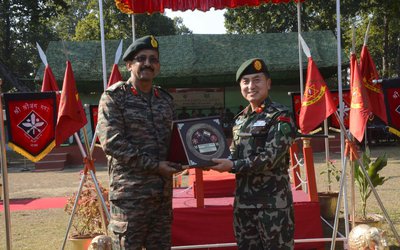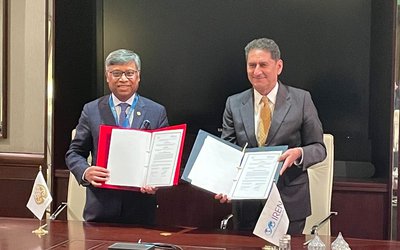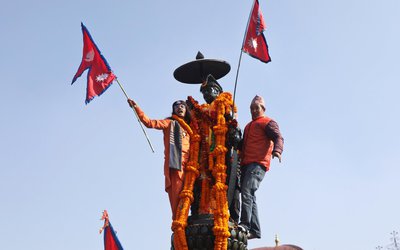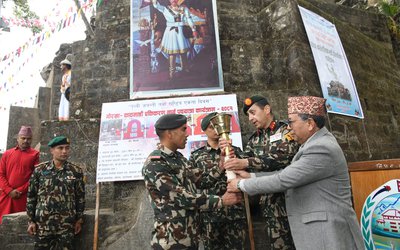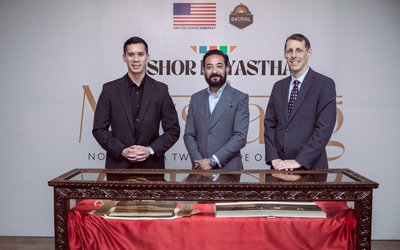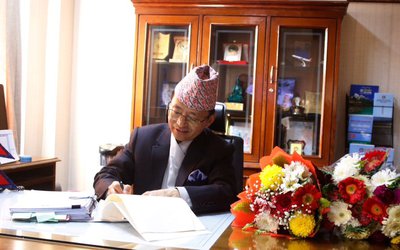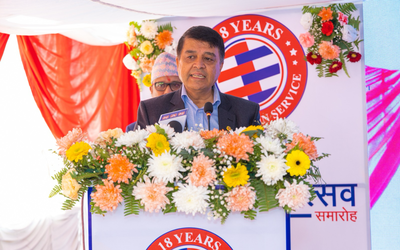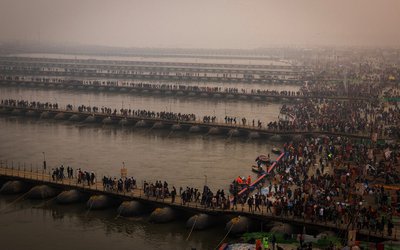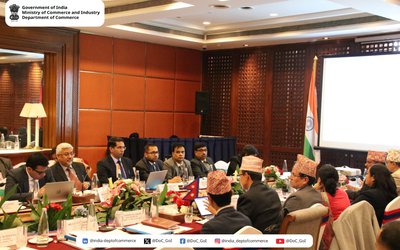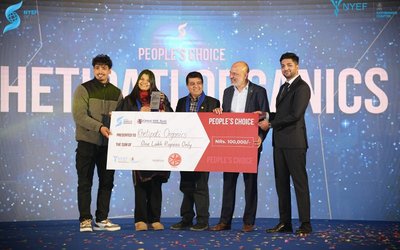
Member of National Planning Commission Professor Dr. Surendra Labh Karna said that transformation of cooking energy is necessary for a country like Nepal to reduce the dependency on imported fossil fuels and other dirty traditional fuels.
Addressing a Modern Energy Cooking Services (MECS) Electric Cooking Outreach National Workshop, member of NPC Professor Dr. Karna said that the launching of the Nepal e-Cookbook is highly important when Nepal is forced to shift from dirty cooking to e-Cooking.

He said that the time for the replacement of LPG has come now and we have only a choice of an induction stove, infrared stove and electric pressure cooker.
NPC member professor Dr. Karna also unveiled Nepal e-Cook Book. Published by People, Energy and Environment Development Association (PEEDA) with support from Modern Energy Cooking (MECS) Services, Loughborough University and University Bristol and funding from UK aid, the e-book aims to spread awareness of the benefits of e-cooking services.
He also said there need to make e-cooking devices more Nepalese kitchen-friendly with a capacity of cooking larger pots as well.
Professor Dr. Karna holds the view that there needs to strengthen of the existing distribution system to make the electricity supply reliable. Thanking the organizer hosting the workshop, Professor Dr. Karna said that National Planning Commission will accommodate the suggestions and experiences shared by the workshop on national energy policy.
Prepared by Biraj Gautam, CEO of PEEDA, as a lead author, the e-Cookbook highlights different aspects of e-cooking aiming to provide much-needed information.
Chairperson of Mahakal Rural Municipality Ram Chandra Dahal said how collaboration between local level government and other organizations helped turned Rural Municipality into an e-cooking spot.
“Now is the time for taking bold action. Let’s take the full advantage of electricity access and technology advancement - evidence, data, information from our research will definitely support in accelerating low carbon sustainable development by adopting #ElectricCooking solutions,” said Pooja Sharma, Practical Action Consulting (PAC) presenting on MECS Electric Cooking Outreach (ECO) in Nepalese Research Overview: Key Findings.
Addressing the program executive Director of the Alternative Energy Promotion Center (AEPC) said that the government has already made it clear that clean energy will be provided to replace the LPG and other traditional dirty energy sources.
Dr. Adhikari called for all different stakeholders to work together to make Nepal a country for e-cooking. He said that APEC is launching a national-level drive for e-cooking to meet the target set by SDGs.
He said that AEPC has been providing e-cooking devices to the people in need adding the distribution of 50,000 e-cooking devices with the support from the British Embassy has already started. For this, AEPC has already signed an agreement with five cooperatives for a soft loan.
Dr. Adhikari highlighted that APEC with the funding from Global Climate Fund is distributing 1 million clean e-cooking devices in Nepal in five years. He said that AEPC will distribute 200,000 e-cooking devices annually.
In his presentation on understanding the suitability of electric pressure cookers in the grid and off-grid households, Biraj Gautam of PEEDA highlights how important electric cooking is for health and the environment. He talked in detail about various aspects of e-cooking in Nepal.
Govinda Khanal of Warnock International shared their experiences of e-cooking in two wards of a municipality of Rautahat District. Khanal highlighted efficient electric cooking market uptake in Nepal: e-Cooking in low-income communities of Rautahat.
Pooja Sharma PAC and Dr. Ashma Vaidya from Ajummery Bikas Foundation presented findings on factors affecting the adaptation of electric cooking devices in a community-based rural electrification entity.
Ashutosh Sharma and Saumya Vaish from IRADs presented findings on electric pressure cooker adoption of electric cooking devices in a community-based rural electrification entity.
Richard Sieff from MECS highlighted the global experiences of MECS in e-Cooking.
Facilitated by Mohan Das Manandhar, Modern Energy Cooking Services (MECS) experts presented papers and findings in the workshop.
Jointly hosted by MECS, Winrock International, Practical Action Consulting, Practical Action, People, Energy & Environment Development Association (PEEDA), and Integrated Research & Action for Development (IRADe), experts presented the findings from the first large-scale, evidence-based research on electric cooking (eCooking) in Nepal.

The research encompassed four 6-month pilot studies which monitored uptake and consumer experiences of eCooking with over 300 households. Based on the research findings, the workshop aims to inform policymakers, investors, and other key stakeholders of the clear opportunities and potential challenges for scaling up e-Cooking in Nepal.
The second part of the workshop began with the formation of six parallel groups. The group discussed key themes identified by the MECS Nepal research. The group discusses them like after-sales service, Promoting e-Cooking, Reaching the last mile, Product Standards, Supply-side infrastructures and Coordinating activities.
- Nepal-India Joint Military Exercise SURYA KIRAN-XVIII Completed
- Jan 13, 2025
- Mahakumbh 2025 One of world's largest pilgrimages begins today, 40 crore devotees set to join event
- Jan 13, 2025
- Swastrahni Bratakatha 2025: Meaning And Importance In Nepal
- Jan 13, 2025
- Nepal-India IGC Meeting Discussed On All Aspects of The Bilateral Trade
- Jan 13, 2025
- Nepalese Young Entrepreneurs Forum (NYEF) Kathmandu Chapter Hosts Global IME Bank Presents NYEF Startup Awards 4.0
- Jan 13, 2025
